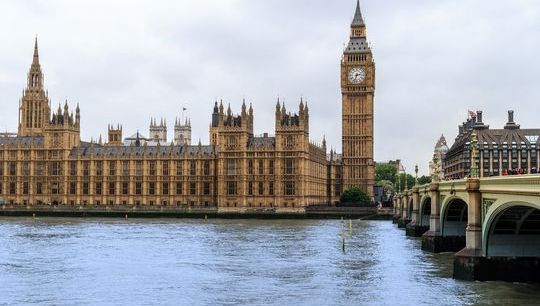The Panama Papers: A missed opportunity?
By Paul Hale
Published: 28 April 2017
Joe Ware in his recent piece for Reaction marks the anniversary of the leaking of the Panama papers. He sees this as a catalyst for the measures to be enacted in the Criminal Finances Bill and an opportunity to force greater transparency onto offshore jurisdictions such as the British Virgin Islands.
I see the Panama Papers rather as a missed opportunity, in the UK at least, which could have put the public debate on much better informed ground. As Joe notes, the Panama Papers revealed the dubious dealings of “a host of senior politicians across the world from Bashar al-Assad to Vladimir Putin, and led to the resignation of the Prime Minister of Iceland”. Instead the UK public remembers that our Prime Minister had owned shares in a collective investment scheme registered with HM Revenue & Customs as thousands of other such funds are and that Emma Watson used an offshore company to hold a property.
It is easy for the press and campaigning NGOs to conflate “criminality, corruption and terrorism” – and tax evasion - with tax avoidance, but they are very different. The former indeed rely on secrecy and the solution lies in the enactment and enforcement of proper measures against money laundering and other financial crimes. This includes the disclosure of beneficial ownership information between government authorities. The focus internationally at the EU, the OECD and the UN is on non-cooperative jurisdictions which do not collect and provide the information.
It is worth noting that there were few (if any) Cayman Islands companies identified in the Panama Papers. Cayman has for some years recognised that its future lies as a financial centre that can offer high-value services, particularly in markets such as investment funds and securitisation vehicles. Offshore financial centres provide a tax neutral venue with appropriate regulation where funds can be raised from institutional investors and used for investment across the world. To do that, offshore financial centres must meet international standards and be seen as reputable. Cayman, for example, is a leading member of the OECD’s Global Transparency Forum and meets FATF and other requirements. It, like the other Crown dependencies and overseas territories, is entering into arrangements for the establishment of a central registry and the immediate exchange of beneficial ownership information on demand with each other and the UK.
Joe and other campaigners want to go further and require that the offshore financial centres adopt public registers of beneficial ownership, something that few developed nations apart from the UK have instituted (and so Miss Watson’s walk-on role in the Panama Papers). Public availability of this information, contrary to Joe’s argument, has little relevance to the efficient functioning of the markets. This is a clash between the public interest and the right of the individual to privacy. In the absence of compelling reasons otherwise, the latter should win.
The tax rate that a country chooses to adopt is a distraction in this debate. By holding assets offshore a person cannot escape the obligation to pay taxes in accordance with domestic laws. In any event, most developed countries including the UK impose little or no tax on foreign investors and even exempt domestic holding companies from tax on dividends and capital gains from overseas subsidiaries. Onshore investment funds and securitisation regimes are not subject to tax - tax neutrality is as relevant to these as to the offshore financial centres. Once again, it is a matter of disclosure of information and the offshore financial centres are compliant with FATCA and the Common Reporting Standard.
It is no less true for being a truism that any tax avoidance by a multinational enterprise in the countries where it is operating must have occurred before the profits arrive offshore. In fact, it is a bit more complicated than that.
The structures used by the multinationals to operate in the countries in which they operate have been enshrined in domestic and international tax law. They arose in the high tax era thirty years or more ago when the US aggressively used transfer pricing rules and controlled foreign companies legislation to force its businesses to declare profits in the US tax net. Since then, corporate tax rates have fallen outside the US but successive administrations, rather than following that path, instead relaxed the requirement to bring profits into US tax. That reduced the effective tax charge but the position was reached where other jurisdictions were taxing the profits properly allocated to them under international tax laws and feeling short changed, while the US was not fully taxing the balance. So, in large part it was not overseas taxes but US tax that the multinationals were not paying.
The BEPS project and unilaterally introduced diverted profits taxes are addressing the issue of profit allocation. However, the effect may be to shift tax payments from the US to other jurisdictions, since the tax paid there potentially becomes a tax credit in the US. This is an important part of the rationale behind the competing tax reforms being promoted by President Trump and the Republican party. They both wish to cut US tax rates so that the US tax system no longer acts as an inducement to US multinationals to invest abroad.
This brings us to the (Republican) elephant in the room. Delaware’s closed corporate register is far larger than that in Cayman. The US has not adopted CRS and the IRS is not able to meet its obligations to make reciprocal exchanges of information under FATCA – which a Republican element wishes to repeal. How will the EU face the prospect of labelling the largest economy in the world a non-cooperative jurisdiction?






